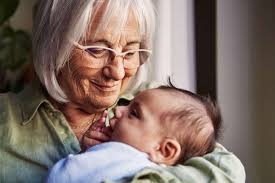Search

Grandparents have long been revered as keepers of wisdom, family tradition, and unconditional love. But in today’s rapidly shifting cultural landscape, their role is not only cherished—it’s changing. A growing number of grandparents are stepping into more active, emotionally engaged roles in their grandchildren’s lives, often becoming second parents, mentors, and trusted confidants.
Research shows that modern grandparents are more involved than ever before. According to Pew Research, over 50% of grandparents in the U.S. provide some form of regular care for their grandchildren¹. This marks a shift from the traditional role of occasional visits and holiday gatherings to daily emotional and logistical support. Today’s grandparents often serve as stable figures in an uncertain world, especially when parents are navigating work demands or economic stress.
In parallel, younger generations are increasingly recognizing the unique value of the grandparent-grandchild bond. Studies have found that strong intergenerational relationships can boost emotional resilience in children² and reduce isolation and depression among older adults³. This mutual benefit is driving a resurgence in purposeful connection across generations.
At The Grandchild Gift Co., we believe in celebrating this deepening relationship. Our curated gift selections—from memory-sharing journals to porch swings designed for two—are chosen with the modern grandparent in mind. These gifts aren’t just things; they’re tools for meaningful time spent together. (All products mentioned are available on our website.)
As family dynamics continue to evolve, so too must the way we honor and support the role of grandparents. They are no longer sitting on the sidelines—they are present, intentional, and irreplaceable.
Sources:
¹ Pew Research Center, 2015 – “More grandparents are helping raise grandchildren”
² Oxford Academic, Journal of Family Psychology, 2017 – “Grandparent-Grandchild Relationships and Child Well-Being”
³ AARP Foundation, 2020 – “Social Isolation: The Silent Health Risk”